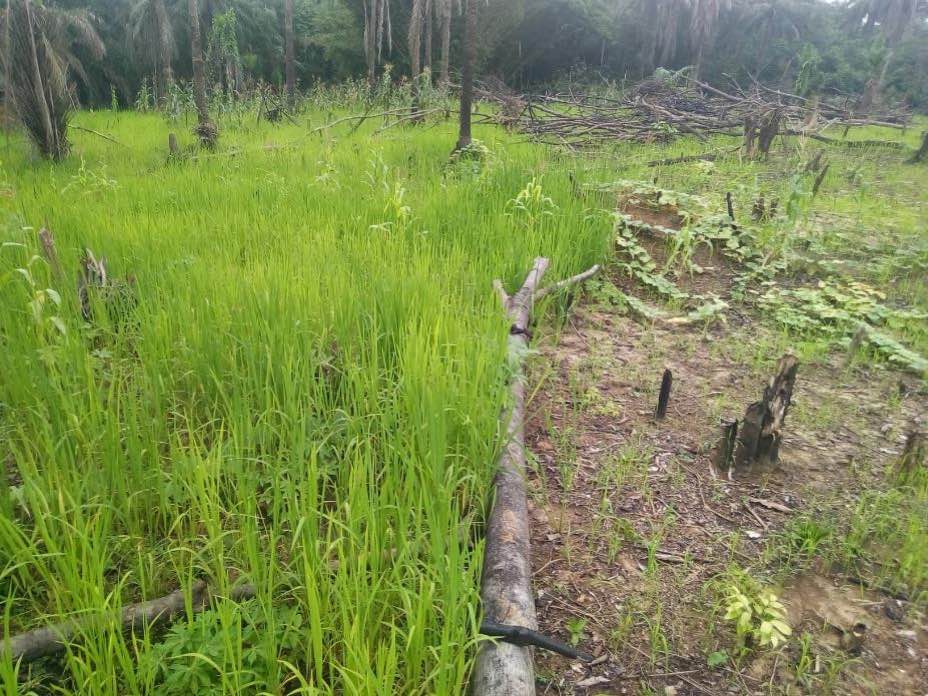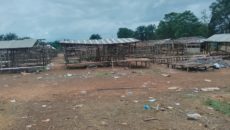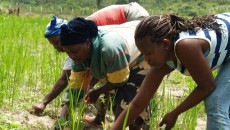BUCHANAN, Grand Bassa – Subsistence farmers in Grand Bassa are calling for more support from the government and international partners to boost their businesses and reduce poverty in rural areas.
According to agriculture coordinator for Grand Bassa, the most popular crop grown by farmers is cassava, mainly because it is “easy to grow.†Joyce Korvah said most farmers in the county are growing on farms that are less than two acres and growing crops that are not in high demand because they lack the capacity or equipment to do otherwise.
She said support from the government, NGOs, and other organizations can enable the farmers to produce more food.
In the Township of Lloydsville, Commissioner Matthew Paye says there are many acres of land available for farming but because of a lack of adequate support, people generally avoid farming.
“Farming at the local level here is very difficult. We have vast land, the soil is rich and blessed by God, but the farming activity in our county is very low,†said Paye, who also engages in subsistence farming.
He said without tools to facilitate mechanized farming, farmers are finding it difficult using labor intensive farming tools such as cutlasses.
“What kind of strength does a man need to have to use cutlass alone without any machine to produce food that can supply whole [the] county?†Paye said. “It is impossible. The man you’re giving the cutlass and even his wife also have to look for food.â€
He added, “We want the central government and international partners to bring in agricultural equipment. We are not going to sell the land to them, but we want to be part of [an] agricultural project that will employ more than 300 men and women to produce a lot of food. We have soils that do not need fertilizer.â€
Besides mechanized equipment, the Lloydsville commissioner added that farms in his region need other items, such as pesticides and fencing to prevent wild animals from entering the farms.
Even if those supplies can be provided to farmers, there is the perennial issue of farm-to-market roads. Blokonjay Channoe, a farmer, said the prevalence of poor roads hampers farmers in rural Liberia because they cannot easily transport their produce to the market.
Areas that are inaccessible to cars require farmers to tote their produce across long distances to reach nearby market grounds for transactions, something Channoe said limits the amount of produce farmers can sell. He said it also increases the amount of crops that can get damaged if it stays too long in transit.
He added, “Look, there are plenty farms in the bush [that grow crops] like bitter ball, pineapple, and plantain, but how we will bring it, my son? It is hard. Now the rain is falling, all the areas are full of water; the log bridges on the roads are spoiling, so it is not easy. It is giving us a hard time, so we are calling on government to help us fix the bridges on the roads.â€
Another farmer, Sunniboy Darkina, said he usually burns his farm as a means of clearing the land, but when the rains are too much, it becomes difficult to burn the farm, limiting the amount and type of crops he can plant.
He said, with better support from the government, farmers in rural Liberia can produce more food for local consumption instead of depending on imported rice and other commodities. Darkina said Liberia’s failure to locally produce enough of its staple food, rice, is because past governments have not set the platform for agricultural development; instead, he said they have prioritized other areas.
The Ministry of Agriculture is responsible for creating an enabling environment for a vibrant agricultural sector. The ministry’s deputy director for communications, Ken Kumeh, confirmed that the ministry provides support for farmers across the country, including smallholder or subsistence farmers.
He said the ministry has been supporting farmers across the country and will continue to do so, especially for those captured under the ministry’s E-Registration database, which allows the government to track farmers and provide them with information and assistance to increase their yields and gain access to markets.
The three subsistence farmers interviewed, Paye, Channoe, and Darkina, said they had not registered for the program.
“But whether captured or not, we are there to support all farmers,†Kumeh said. “You know the budget has just been passed and we are in transition. This is a new administration; so, we are trying to put everything together to ensure that farmers, especially rice producers, cassava and vegetable producers can be helped. This is a one-year plan under the Pro-Poor Agenda.â€
He said the ministry will use its budget to provide subsidies for supplies such as equipment and tools for farmers across the country.
The ministry’s budget in the 2017-18 fiscal year was US$2.5 million. This fiscal year, the draft budget is US$5.3 million.
Kumeh also said the Ministry of Agriculture is encouraging farmers to carry out lowland farming as shifting cultivation contributes to deforestation; moreover, he said lowland farming (swamp land farming) is especially productive for rice farmers. He also assured farmers who were not captured under the previous E-registration drive to be patient.
Featured photo by Sampson David



